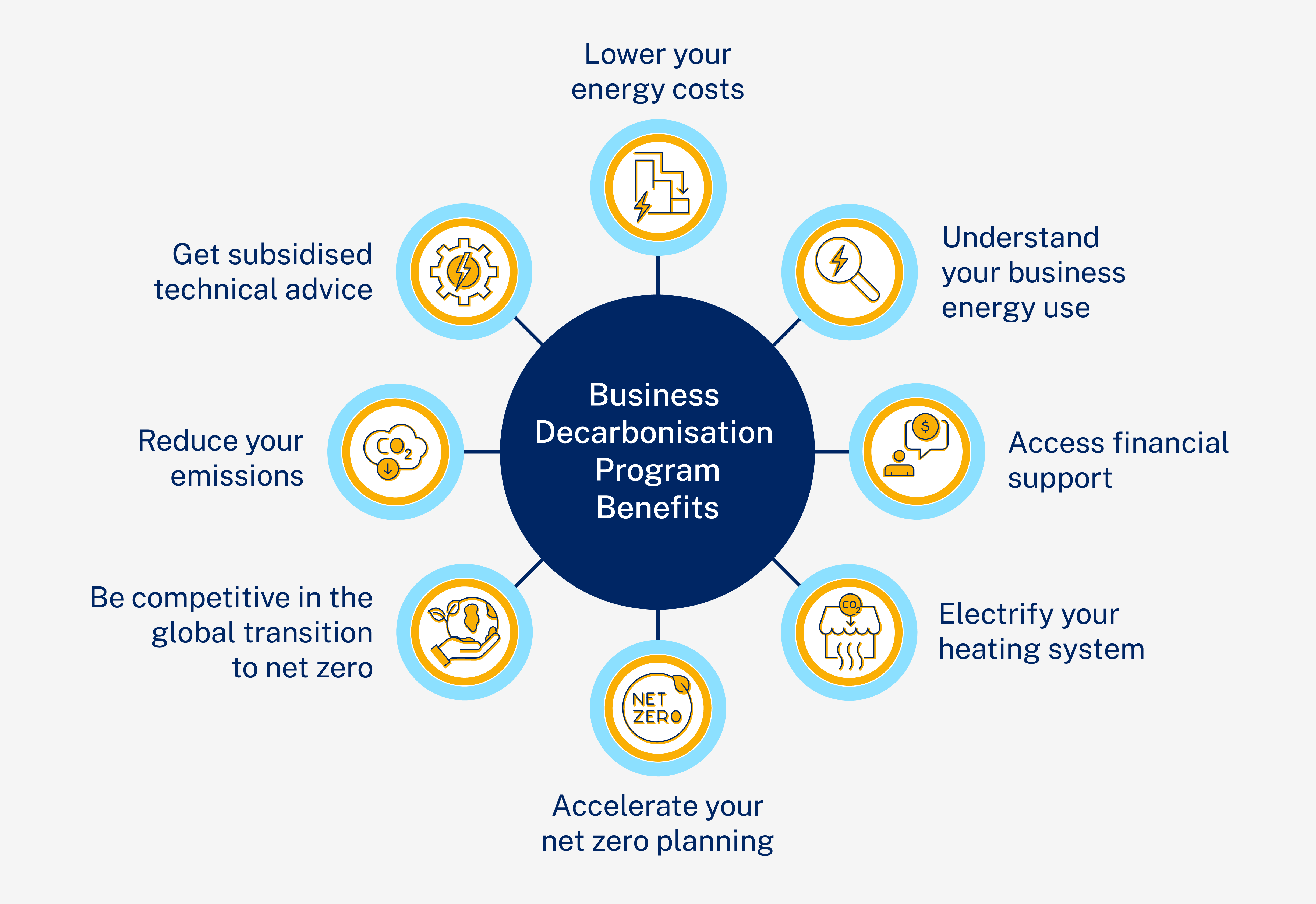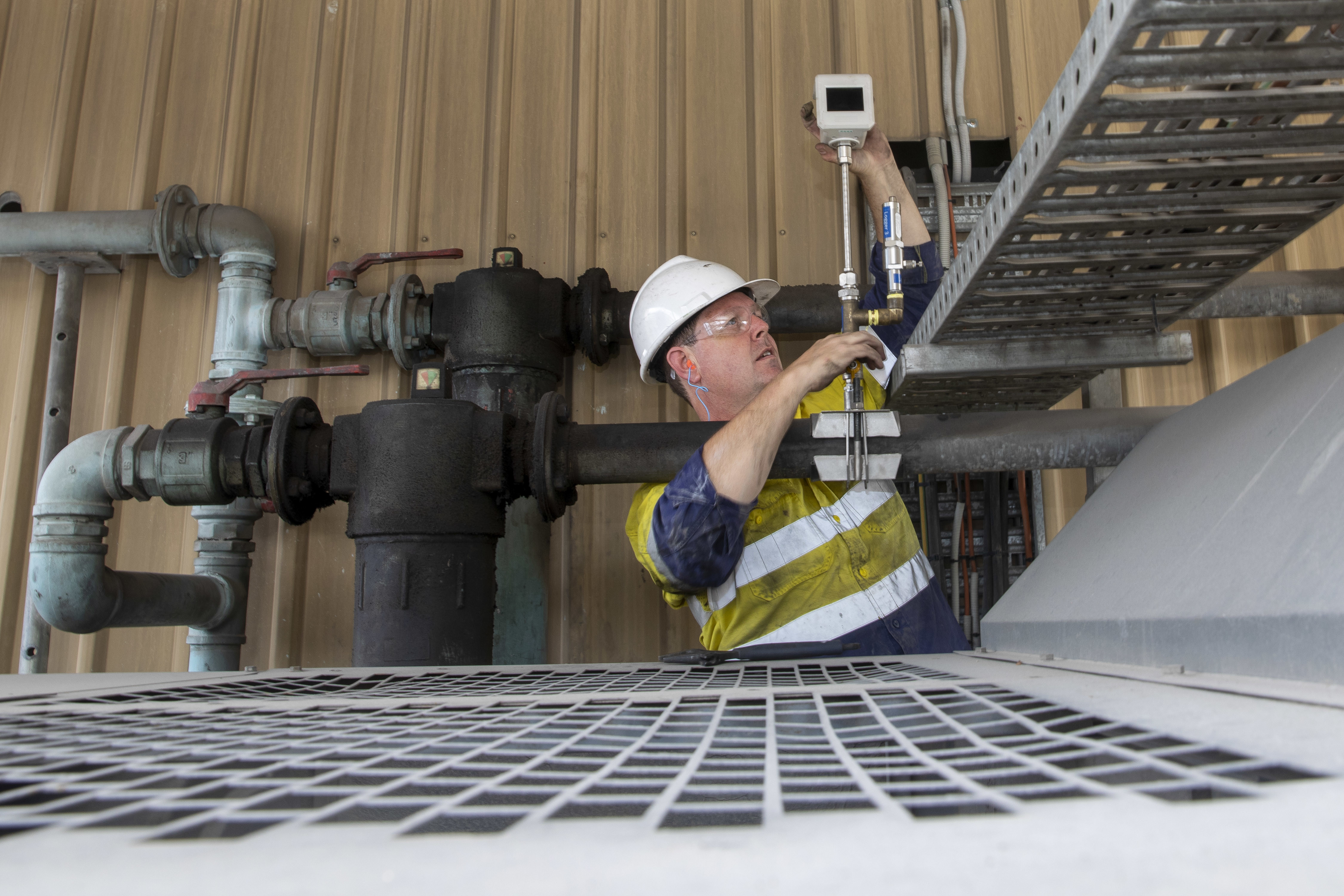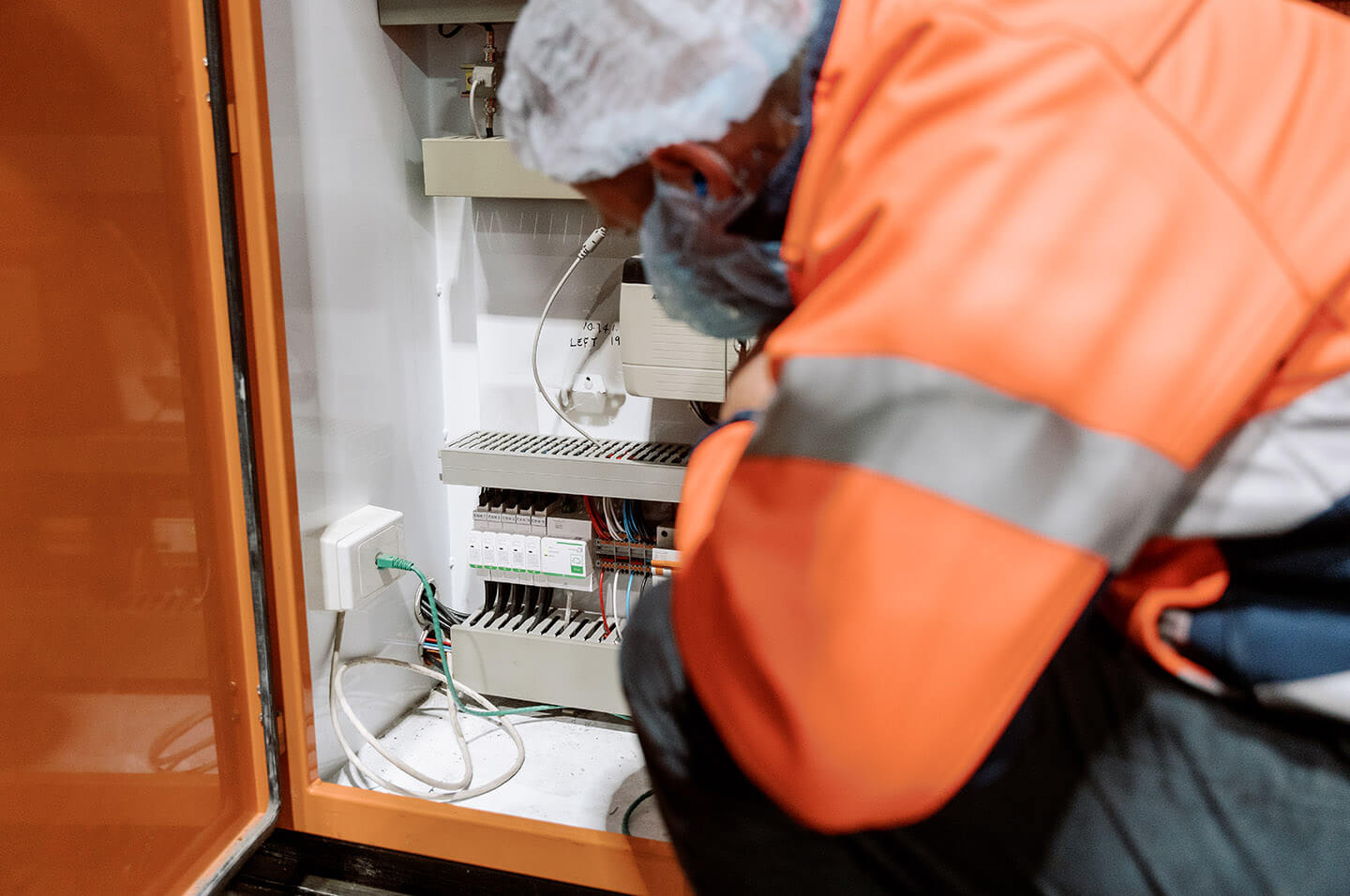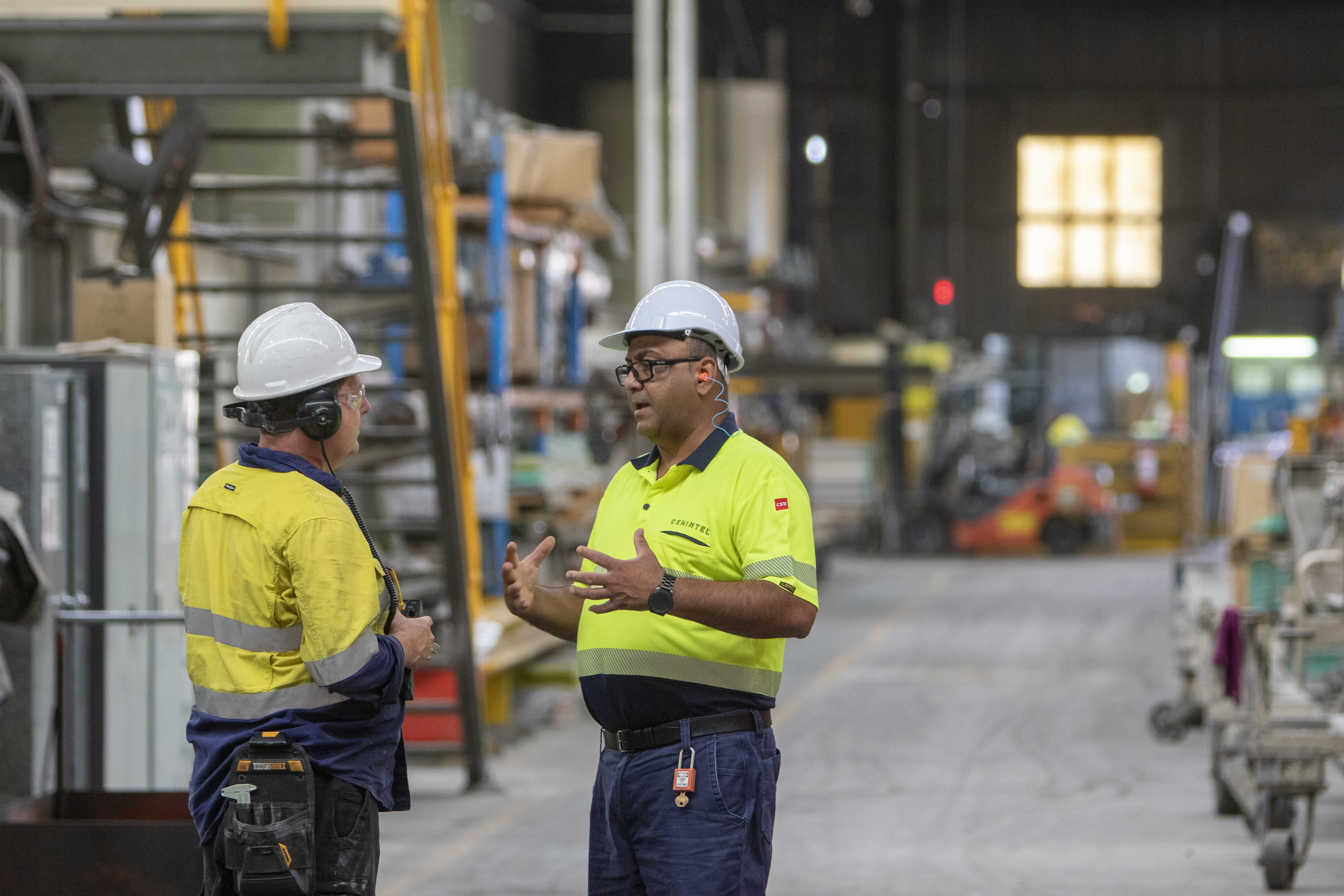Current funding opportunities
Metering and monitoring grants:
Apply now for the grant that best suits your metering and monitoring needs. There’s funding available to install a small number of submeters, undertake comprehensive metering and monitoring upgrades and support metering data analysis to inform data-driven energy performance improvements.
Heat Pump Feasibility Grant:
Apply for up to $30,000 to cover up to 75% of the cost to assess whether a heat pump is the right fit for your business site.
Decarbonising your business can help you achieve long-term benefits, including:
- saving money on your energy bills by reducing energy consumption
- improving operations and productivity while understanding your current carbon emissions impact
- securing your brand's future and attracting investments
- becoming a catalyst for change through emissions reduction to help protect our planet for future generations.
The NSW Government is committed to supporting businesses to decarbonise. We’re investing $22 million to help businesses make simple low-cost improvements and take practical steps to accelerate the shift towards net zero emissions.
This funding is part of the NSW Net Zero Plan Stage 1: 2020-2030 to reduce emissions by 70% by 2035 and achieve net zero by 2050.
Start your decarbonisation journey today
We’re here to support you throughout your entire decarbonisation journey. You can access some of our offers now and more will be available in the near future.
-
Strategic planning for net zero
-
Metering and monitoring
-
Targeted technical services
-
Industry upskilling
Developing a net zero plan and taking action can help you improve your competitiveness in the global transition to net zero. Use our Net Zero Business Guide to strategically plan and implement actions towards achieving net zero emissions.
Net Zero Planning Grant
The Net Zero Planning Grant provided businesses up to $30,000 in funding to cover up to 75% of the cost to strategically plan and progress their path to net zero.
Net Zero Pathways pilot
Since 2021, we’ve worked with over 50 organisations and multiple service providers to develop net zero plans as part of Net Zero Pathways pilot. See how McPhersons benefited by participating in the pilot.
For more information, read the NSW Net Zero Pathways pilot - lessons learned and next steps.
Metering and monitoring grants
There are 3 grants open for applications to provide support across different stages of the metering and monitoring journey. Apply now for the grant that best suits your metering and monitoring needs, from installing a small number of submeters, to undertaking comprehensive metering and monitoring upgrades, to receiving support for analysing metering data to inform data-driven energy performance improvements. Apply now for the:
- Submetering Grant, to receive up to $20,000, covering 50% of project costs to install permanent energy submeters
- Metering Plan Implementation Grant, to receive $20,001 to $100,000, covering 50% of project costs to support comprehensive metering upgrades, informed by metering and monitoring plans
- Energy Performance Services Grant, to receive up to $50,000, covering 50% of project costs to analyse metering data to inform data-driven energy performance measures.
You can also take advantage of our Metering and Monitoring Planning Initiative and work with a specialist consultant to identify gaps in your metering system and develop a metering and monitoring plan.
Learn more about metering and monitoring support
Having robust energy data will empower your business to make informed, long-term investment decisions. Energy metering and monitoring systems can help you reduce your energy costs by 5 to 15%. To learn more about how Tip Top installed submeters and reduced their energy consumption, watch our case study.
Heat Pump Feasibility Grant
The Heat Pump Feasibility Grant is now open to applications. This Grant offers eligible NSW businesses a unique opportunity to secure up to $30,000 in funding, covering up to 75% of the project costs, to assess whether a heat pump is the right fit for your business.
Heat pumps are emerging as a key solution to electrifying heating systems, which is essential to decarbonising our economy. They can help you reduce emissions, energy costs and reliance on inefficient technologies.
Sign up to stay updated.
Energy service providers and tradespeople can be the first to benefit from the opportunities emerging from the global shift to net zero.
By working with industry, we‘ll design and deliver professional development training courses and certifications to address key skills gaps and capabilities within your business. These courses will help build a highly skilled net zero services industry in NSW and create future-fit jobs.
The Energy Management Systems (EnMS) training course is designed to upskill energy advisors on effective energy management.
Sign up to stay updated.
Current funding opportunities
Receive up to $20,000, covering up to 50% of the project costs, to install permanent submeters for tracking energy use in equipment and processes.
Apply now
Receive between $20,001 and $100,000, covering up to 50% of the project costs, to support comprehensive metering and monitoring upgrades, informed by metering and monitoring plans.
Apply now
Receive up to $50,000, covering up to 50% of the project costs, to support the effective use of your submetering data and turn those insights into impactful action.
Apply now
Receive up to $30,000 to assess how a heat pump could help reduce your energy costs and emissions
Apply now
Assess your metering and monitoring needs, with up to $15,000 available to access help from our specialist panel.
Find out more
Stay updated
If you want to stay updated about current and upcoming services to help your business decarbonisation journey, please fill in the details below.






